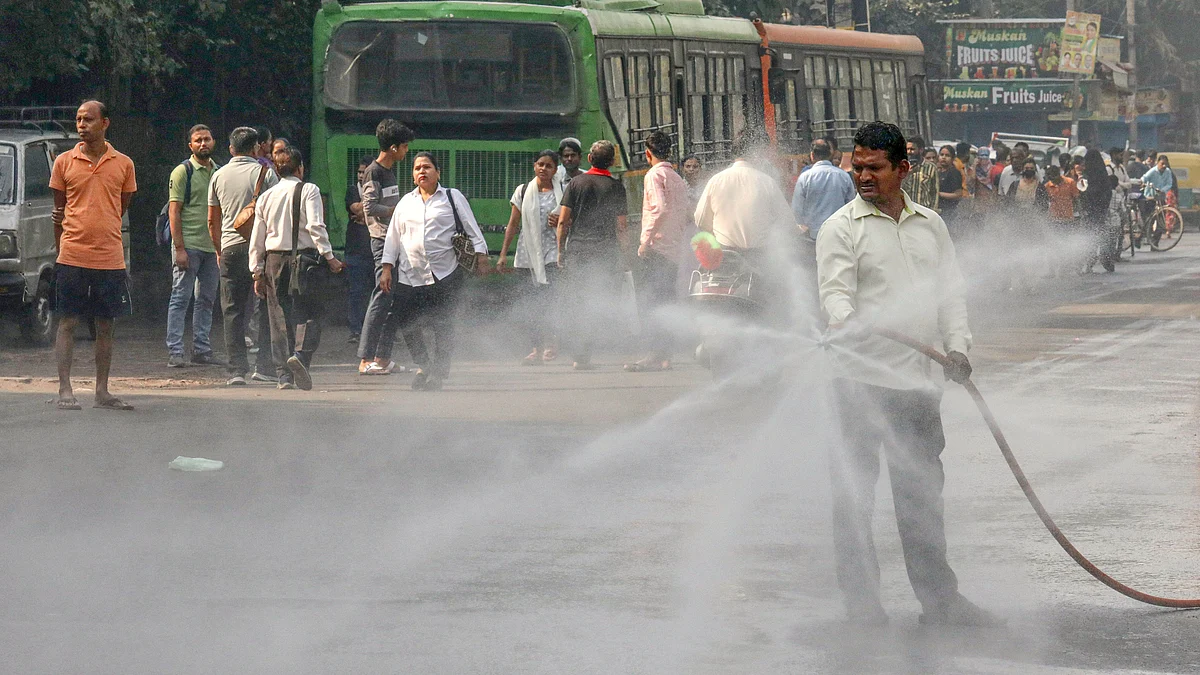Supreme Court seeks CAQM affidavit on steps to curb Delhi-NCR pollution
Bench flags reports on faulty monitoring stations; stresses proactive action under GRAP

The Supreme Court on Monday directed the CAQM (Commission for Air Quality Management) to file an affidavit outlining steps taken to prevent further deterioration of air quality in Delhi-NCR, and stressed the need for proactive measures rather than waiting for pollution levels to reach the 'severe' category.
A bench of Chief Justice of India B.R. Gavai and Justice K. Vinod Chandran, hearing the case, noted reports suggesting that several air monitoring stations in the capital were not functioning during Diwali. The court said the authorities must ensure monitoring infrastructure remains operational to enable timely implementation of the GRAP (Graded Response Action Plan).
Senior advocate Aparajita Singh, assisting the court as amicus curiae, referred to media reports stating that only nine out of 37 monitoring stations were operating continuously on Diwali day. “There are newspapers after newspapers saying that monitoring stations are non-functional. If the monitoring stations are not even functioning, we don't even know when to implement GRAP,” she told the bench. She urged the court to seek clear data and an action plan from the CAQM.
Directing the CAQM to respond, the bench said, “The CAQM is required to place on record an affidavit as to what steps are proposed to be taken to prevent the pollution from turning severe.”
Counsel appearing for the CAQM submitted that the CPCB (Central Pollution Control Board) is responsible for monitoring air quality data. Additional solicitor-general Aishwarya Bhati assured the court that the concerned agencies would file the required report.
On 15 October, the bench had allowed sale and limited bursting of green crackers in Delhi-NCR during Diwali, with conditions aimed at balancing festive traditions with environmental safeguards. The use of green crackers was restricted to specified hours on Diwali and a day earlier, with sale permitted from 18-20 October on a test case basis.
The bench had also directed the CPCB, in consultation with state pollution control boards, to monitor the air quality index from 14 October to 25 October and submit daily reports. It further instructed regional offices to collect sand and water samples from areas with higher firecracker usage for analysis.
With PTI inputs
Follow us on: Facebook, Twitter, Google News, Instagram
Join our official telegram channel (@nationalherald) and stay updated with the latest headlines
